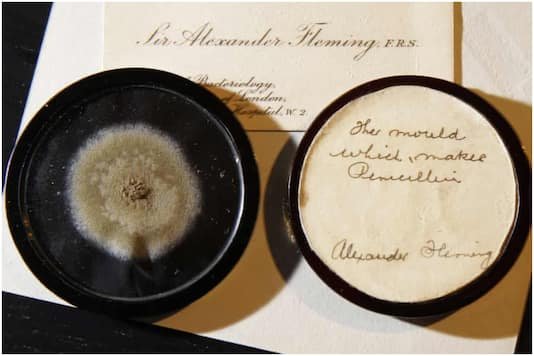Almost every student of high school learned how Alexander Fleming inadvertently found penicillin and changed the world. Now scientists have sequenced the mold genome which led him to his groundbreaking discovery.
Here’s the tale, you should know if you haven’t heard it. Fleming, a Scottish physicist, and microbiologist went on a holiday in 1928 and left the laboratory unattended. He noticed a mold that formed on one of his Petri plates, probably some bacteria, upon his return. He also found that all the Staphylococci of his dishes were apparently killed by fungal growth and hence penicillin was discovered

92 years later, the mold is being sequenced. The sequence discovery could help to find the solution to antibiotic resistance.
Research led by Timothy Barraclough, Ph.D., from the Department of Life Sciences at Imperial and the Department of Zoology at Oxford, said: “We originally set out to use Alexander Fleming’s fungus for a variety of different experiments, but we found, to our surprise, that no one had sequenced the genome of this original Penicillium, despite its historical significance to the field.”
Ayush Pathak, Ph.D., at Imperial’s Department of Life Sciences, said, “Our study might help encourage new solutions to the battle against antibiotic resistance.” Pathak was the first author of the team’s paper published in Scientific Reports.
The team used frozen molds that have been stored in the freezers for decades which contains 30,000 different strains of different microorganisms.

Actually, in the United States, there are two main strains of Penicillium are used to mass-produce the antibiotic. The researchers compared the genetic details of these two strains with the DNA of the original mold, the DNA used by Fleming.
With continuous use over the decades, many bacteria have become antibiotic-resistant. Traditionally known penicillin or other antimicrobial compounds can not kill the bacteria or cure the person with the disease. Barraclough claims that researching evolution through the current genome and the original mold can help them understand how to change current development to help destroy superbugs.
